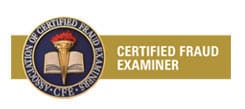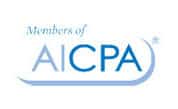Part 1: Know Your Prospective Employee
Our businesses are operating in a challenging environment, where we’re cutting costs anywhere we can to maintain profitability. How much harder would it be to remain profitable if there are hidden costs? Every day, trusted employees are stealing money right within the confines of their position. It could be enough to hurt your margin, or worse, drive you out of business. In this blog, I submit to you that one area you cannot afford to cut costs is on employment background checks. Companies must have employees on their teams who are honest and trustworthy. To reduce the risk of all sorts of deviant employment behavior, business owners should know their candidates by having background checks completed on all prospective employees. This is part 1 of a 3 series discussion on the importance of employment background checks.
The Society for Human Resource Management (SHRM) recently reported that approximately two-thirds (69%) of organizations conducted criminal background checks on all of their job candidates. Those organizations primarily said that they conduct criminal background checks to 1) reduce legal liability for negligent hiring (52%), and 2) to ensure a safe work environment for employees (49%). The top two convictions that are very influential in the decision not to extend a job offer are violent felonies (96%) and nonviolent felonies (74%). Based on these statistics, there is a trend toward due diligence in hiring. However, there are still organizations that are assuming risk by not following proper hiring standards and background checks, and additionally, mere criminal background checks may miss misreported educational and work histories that could indicate future illegal and dishonest behavior.
It’s essential that companies reduce the chances of legal liability for negligent hiring, ensure a safe work environment for employees, reduce/prevent theft and embezzlement of company funds/intellectual property, and assess the overall trustworthiness of the job candidate. It’s paramount that all companies know their job candidates. If you aren’t serious about implementing controls and hiring honest and forthright employees, then your company will be at risk, and it will only be a matter of time until you become a statistic of embezzlement and fraud.
When interviewing a candidate in order to determine if they are a good fit in your organization, not only should the resume and interview be scored, but the candidate’s history should be handled and investigated by a professional who understands the proper procedures for verification. After all, anyone can go on-line and research how to prepare a professional resume, but is that information accurate?
Recent Case Example:
In 2012, the CEO of Yahoo was forced out because of false statements on his job resume. It’s incredible that someone with such a big title and responsibility could be hired without a proper background check, however it happens every day. An unscrupulous candidate will do anything possible to get an advantage, and one of the easiest ways to get ahead is by creating another layer of experience or by including degrees not earned, titles and jobs not attained, and certifications not possessed. In this case, the former Yahoo CEO claimed he had a degree in computer science, when in fact he did not. Confirming the education of a candidate is “Background Check 101,” but it’s often overlooked because of relaxed company standards for key executives.
We’ve briefly discussed what is at stake if a company does not take background checks seriously. In Part 2 of our series, we’ll discuss why background and integrity checks not only should be conducted on candidates, but also on current employees.
Michael R. Hathaway, CFE, CAMS, P.I.
Director of Investigations
Certified Fraud & Forensic Investigations





